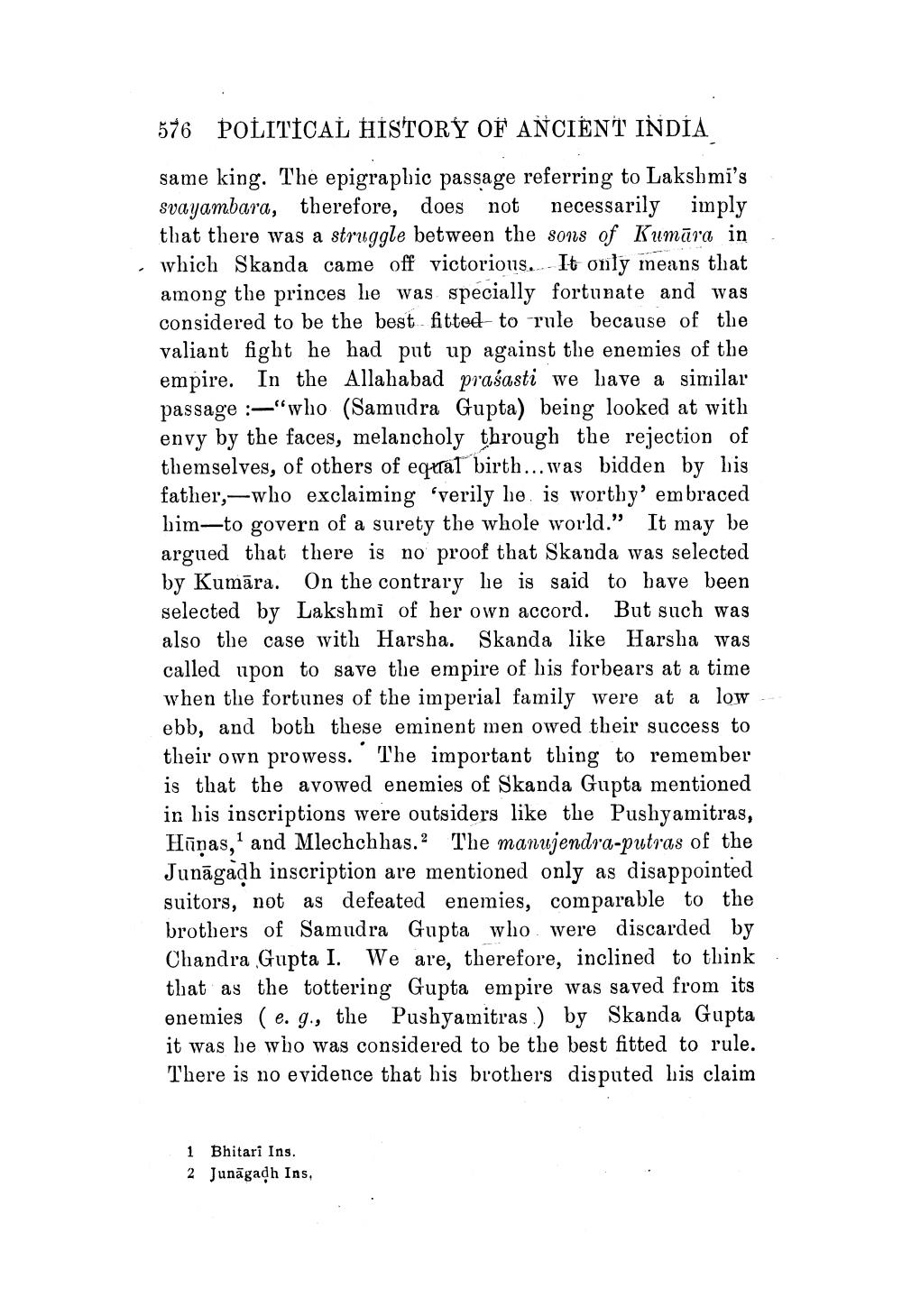________________
576 POLITICAL HISTORY OF ANCIENT INDÍA same king. The epigraphic passage referring to Lakshmi's svayambara, therefore, does not necessarily imply that there was a struggle between the sons of Kumāra in which Skanda came off victorious. It only means that among the princes he was specially fortunate and was considered to be the best fitted to rule because of the valiant fight he had put up against the enemies of the empire. In the Allahabad prasasti we have a similar passage :-"who (Samudra Gupta) being looked at with envy by the faces, melancholy through the rejection of themselves, of others of equal birth... was bidden by his father,—who exclaiming 'verily he is worthy' embraced him—to govern of a surety the whole world." It may be argued that there is no proof that Skanda was selected by Kumāra. On the contrary lie is said to have been selected by Lakshmi of her own accord. But such was also the case with Harsha. Skanda like Harsha was called upon to save the empire of his forbears at a time when the fortunes of the imperial family were at a low ebb, and both these eminent men owed their success to their own prowess.' The important thing to remember is that the avowed enemies of Skanda Gupta mentioned in his inscriptions were outsiders like the Pushyamitras, Hīņas,' and Mlechchhas. The manujendra-putras of the Junāgadh inscription are mentioned only as disappointed suitors, not as defeated enemies, comparable to the brothers of Samudra Gupta who were discarded by Chandra Gupta I. We are, therefore, inclined to think that as the tottering Gupta empire was saved from its enemies ( e. g., the Pushyamitras.) by Skanda Gupta it was he who was considered to be the best fitted to rule. There is no evidence that his brothers disputed his claim
1 Bhitari Ins. 2 Junāgadh Ins,




